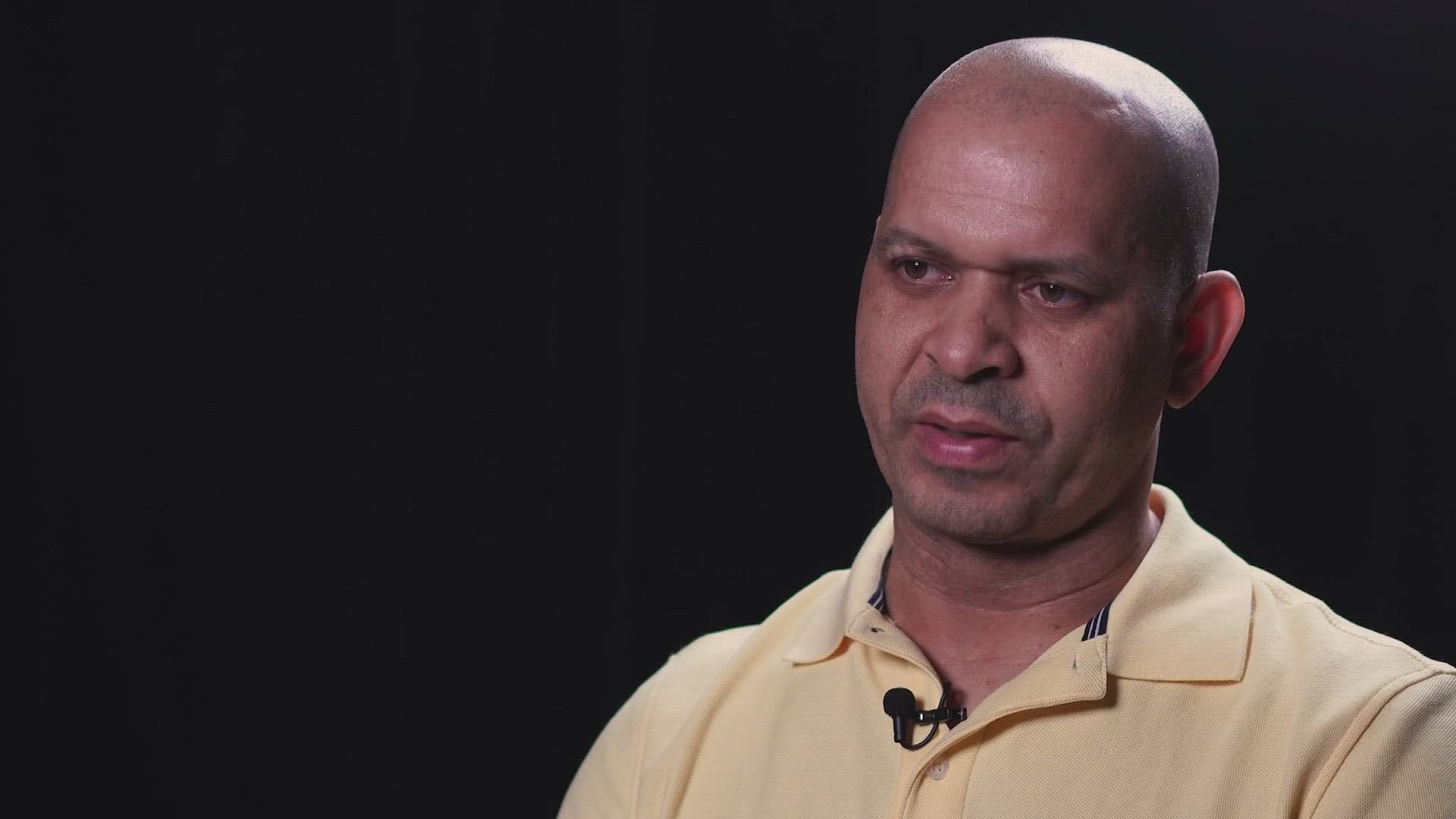“Emotionally, everything that I believed in was crumbling around me," former U.S. Capitol Police Sgt. Aquilino Gonell says.
Gonell, a veteran of the Iraq War who joined USCP after earning his American citizenship through the U.S. Army, was one of more than 140 officers who were injured during the Capitol riot. He says he was attacked by dozens of people — sustaining injuries to his feet, hands, and shoulder that ultimately forced him into an early and unwanted medical retirement. Leaving the force meant giving up his career of 17 years, and a promotion to lieutenant he says was on track for prior to Jan. 6. But, it hasn’t meant giving up speaking out on behalf of what he and other officers endured that day.
In the three years since the attack, Gonell has driven to the federal courthouse in D.C. – which sits just across the street from the Capitol – to testify at trials, read victim impact statements, and show support to other officers who are the victims in more than 1,200 cases now filed by the Justice Department. Gonell estimates he’s appeared at more than 20 sentencings so far, including multiple cases where defendants were convicted of violently assaulting him.
“I continue to go to court to let the judge know this was not an easy thing for me to do to survive it,” Gonell says. “But I want to hold those people accountable.”
In his statements, which he writes anew each time he goes to court, Gonell recounts again and again what he and other officers went through on Jan. 6:
- “January 6 was a horrible day where I almost lost my life,” one impact statement reads.
- “Help me, help me, pull me the **** up,” he wrote in another, describing the moments he was on the ground being attacked by rioters.
- “I still have PTSD remembering what happened to me and my colleagues that day,” yet another said.
Gonell always seeks the maximum sentence, which for many of the felony defendants in Jan. 6 cases ranges from eight to 20 years in prison, telling judges, “Please don’t desecrate the sacrifices I made that day.”
Gonell, who is already scheduled to appear at another eight hearings so far this year, says there are days when his wife asks him to stop returning to court out of concern for the mental toll it takes on him.
“And I keep telling her that I want full accountability – especially for those people who assaulted me,” he says.
Collectively, defendants convicted of attacking Gonell have received decades in prison. Mark Ponder, a D.C. resident who swung a metal pole at Gonell so hard it cracked his riot shield, was sentenced in 2022 to more than five years in prison. Tristan Chandler Stevens, a Florida man convicted of assaulting Gonell with a stolen riot shield, was also sentenced last year to five years in prison. Kyle Fitzsimons, the Maine butcher who caused the career-ending injury to Gonell’s shoulder during what a federal judge described as a “single burst of frenzied fury,” was sentenced last July to seven years in prison.
After dozens of court appearances, Gonell says his emotions aren’t always the same at every hearing.
“It ranges from anger, it ranges from disappointment, it ranges from, ‘I can't believe they're using their military background to get leniency,’” Gonell says. “Describing some of these symptoms that they deal with like PTSD and being overseas. And I did that same thing, and you're describing my own symptoms.”
Gonell has now chronicled his journey in a new book, "American Shield.” He says he wrote it as a way “for me to tell my own story, my own testimony.”
That story begins in the Dominican Republic and later follows him to Iraq, where he deployed during Operation Iraqi Freedom. He eventually attained the rank of staff sergeant with the Army before joining the Capitol Police, where he spent nearly 17 years.
His career in uniform ended in December 2022, when he handed in his badge to focus on his physical and mental recovery.
“I still have on my phone GPS the address of work,” he told WUSA9 late last year as he drove to another court hearing for a Jan. 6 defendant. ”And, I do miss it.
It’s that pain that drives Gonell to keep coming back to court. He says only once so far did he believe a defendant was truly sorry for what he did: Fitzsimons, the Maine butcher who ended his career.
“He said something along the lines of, ‘A man’s worth is what he does for a living,’” Gonell says. “And he said that he was sorry for taking my my job, my career.”
“And he also said, ‘Thank you for not shooting me,’ because he knew I was very close,’” Gonell adds.
Gonell says with every trial he shows up at, every sentence he sees handed down, the faith in democracy he had shattered on Jan. 6 is slowly repaired. In December, the day after his interview with WUSA9, his wife became a full-fledged member of that democracy as she was sworn in as a naturalized U.S. citizen.
It’s a moment that could happen, Gonell believes, because of the stand he and his fellow officers took defending the Capitol.
“Because if the mob succeeded on Jan. 6, I don't think we would have a democracy,” Gonell says. “I don't think we would have a United States of America.”
Gonell says he will mark the third anniversary of the Jan. 6 attack on the Capitol at home, with his family.


